Being an American-Swedish family (also rooted in Finland on my side) with a love and appreciation for the old Norse names, we have most likely gone through every single Viking, Old Norse, Scandinavian and Nordic name possible.
Why? Well, we scoured the web for the right names for each boy or girl that was about to enter the world each time we were pregnant with our three kids. As we didn’t know the sex of the babies until they were born, we looked up an equal amount of boy and girl names during our name research and made name shortlists for each other to approve or disapprove of as we went along.
I also wanted to see what the most common names in the Nordics as a whole were, so I set out to collect all the name data I could find from the official sources and spent weeks compiling it. The results are displayed below and are updated regularly as new data is presented by the authorities. For those that would like to explore more unique names, we also list our personal favorites and recommendations that will go well in both the Nordics and elsewhere in the world.
In the end, we opted for an Old Norse first name coupled with a more current Nordic middle name for each of our children, so in our recommended name lists you’ll find both classic Viking names as well as more modern Nordic names, along with the meaning of each name, and the number of people with the name as their first name.
Let’s take a look at the lists, starting with the data on the most common Nordic names.
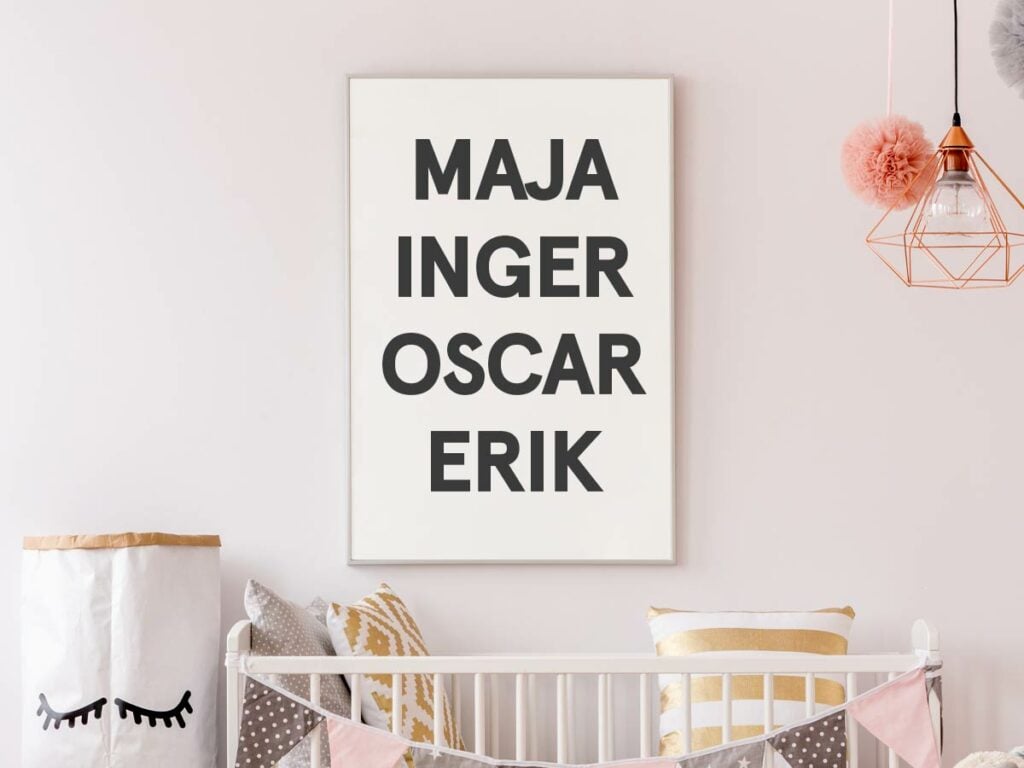
The Most Popular Nordic and Scandinavian Names
We’ll start looking at what the most common names are for all the Nordic countries combined, first for newborn babies and then for the population as a whole. I’ve only counted when the names are used as first names, and not as middle names.
Using the latest available data from the official statistics databases of Sweden, Denmark, Norway, Finland, and Iceland, we can get a pretty good sense of which first names are most popular right now in the region as a whole. However, the numbers are not always exact, as some of the databases only cover the top 20, 50, or 100 names. The lists below are still a fairly accurate estimation of the most popular names in the Nordics.

Top 10 Most Popular First Names For Newborn Girls in the Nordics
| First Name | Meaning and origin | # of Nordic Newborns |
|---|---|---|
| Ella | Ella is a Hebrew name that means “Goddess”. Also used as a short form of Gabriella, Eleonora, Elin, Daniella, or Elisabeth. | 1280 |
| Olivia | Olivia means “Olive Tree” in latin, and has been in use in Sweden since the 18th century. | 1268 |
| Alma | Alma probably stems from the latin Almus, which means “mild”. It may also come from the Spanish word for “soul”: Alma. | 1255 |
| Maja | Maja is a Scandinavian/German/Slavic form of the greek Maia (meaning “princess”), and also a short form of Maria in Sweden since the 14th century (which either means “rebellious”, “long-awaited child”, or “loved” depending on the source. | 1241 |
| Emma | Emma is a name with Germanic roots, originally a nickname for Ermin/Emerentia (meaning “great”, “whole”, or “universal”. It has later also been used as a nickname for Emilia. | 1122 |
| Freja | Freja is the godess of fertility in Norse mythology, and means either “wife” or “ruler” in Old Norse. Freja the goddess is also connected to love, war and magic, and was traditionally written as Freyja. | 1097 |
| Nora | Nora is of either Roman or Arabic origin and means “light” or “god is my light”. It became popular in Scandinavia after Henrik Ibsen named his main character Nora in “A Dollhouse”, portraying the perfect wife and mother. Is sometimes written as Norah and Noora. | 1094 |
| Astrid | Astrid is an Old Norse name that means “god and peace” or “beautiful”. In Old West Norse it was written as Ásfríðr, and in Old East Norse as Estrid. In Norway the name is sometimes written as Astri. | 1082 |
| Selma | Selma has Celtic roots connected to the town of Shelma (which means “beautiful view”). It may also be used as a short form of the German Anselma, which means “god’s helmet”. | 920 |
| Alice | Alice stems from the Germanic Adelheid which is made up of the two words “noble” and “light”. | 903 |
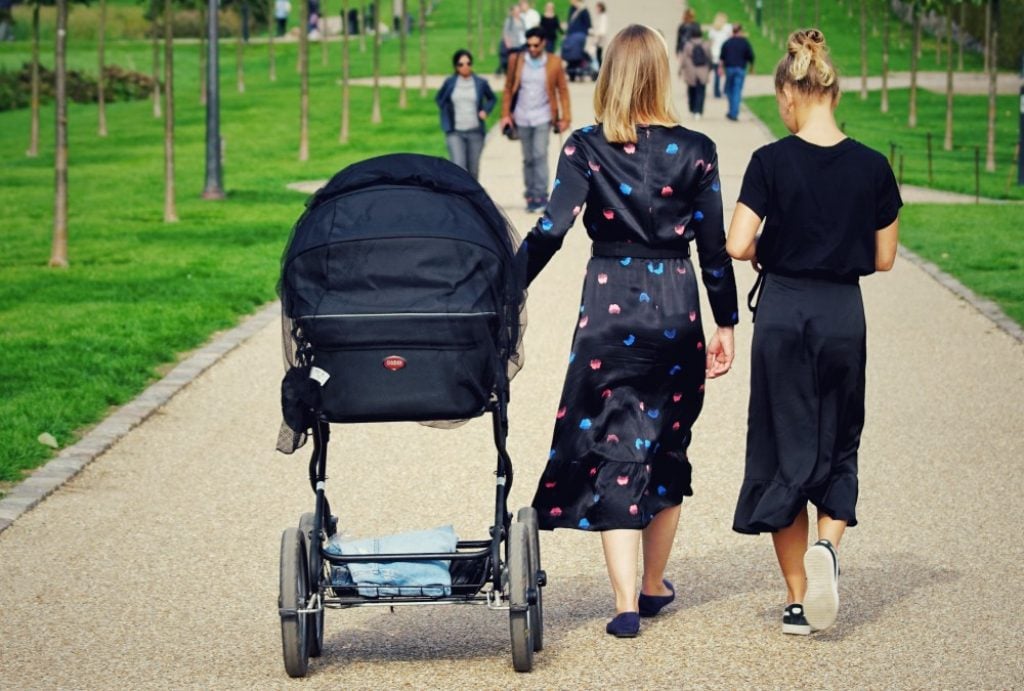
Top 10 Most Popular First Names For Newborn Boys in the Nordics
| First Name | Meaning | # of Nordic Newborns |
|---|---|---|
| Oliver | Oliver is an English name with likely Greek roots. It means “calm and peaceful”, but is also connected to the word olive. | 1870 |
| Noah | Noah is originally a biblical Hebrew name that means either “rest”, “comfort”, “royal”, or “star”. | 1818 |
| William | William, or Vilhelm/Wilhelm, is a Germanic name in use in Scandinavia since the 12th century. The name is built on the two words “will” and “helmet”. | 1672 |
| Elias | Elias is a Hebrew name that means “my god”, and is usually a show of faith in one of the Abrahamic religions (Christianity, Judaism, and Islam). | 1629 |
| Lucas | Lucas is of Roman/Greek origins and means “of Lucania” (a region in southern Italy) as well as being connected to the patron saint of doctors, artists, and creatives. | 1614 |
| Oscar | Oscar comes from the Celtic “Oscur”, which in turn is believed to have come from the Old Norse Ásgeirr with the meaning “spear of the gods”. The Frankish form of the name is Ansgar. Another theory behind the name is that it stems from the two Celtic words “os” and “cara”, which would mean “friend of the deers” in Celtic. | 1499 |
| Emil | Emil is likely of Roman origins (as Æmilius) with the meaning “enthusiastic” or “driven”. | 1361 |
| Alfred | Alfred is an Old English name (spelled Ælfræd) which means “advice of the elves”. | 1293 |
| Liam | Liam is an Irish form of the name William (a Germanic name meaning “will” and “helmet”) | 1280 |
| Hugo | Hugo is a short form of the Germanic Hubert, which means “light of reason”. | 1207 |
We can see a clear trend toward more international names for newborn babies, but with a couple of old Norse names still going strong for newborn girls (Freja and Astrid). Let’s see how this compares to all the living people of the Nordics with the most popular first names overall.
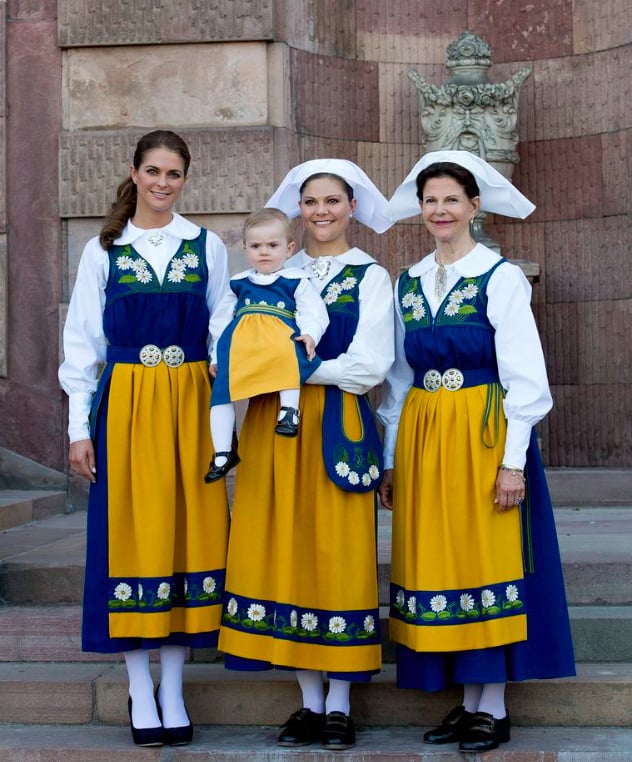
Photo: The Royal Court of Sweden
Top 20 Most Popular Female First Names in the Nordics
| First Name | Meaning | # of Nordic People |
|---|---|---|
| Maria | Maria is the Greek and Roman form of the Aramaic Mariam (and Hebrew Mirjam). It’s been used in Sweden since the 14th century and means “rebellious”, “long-awaited child”, or “loved” depending on the source. | 195779 |
| Anna | Anna stems from the biblical Hebrew Channa (mother of Maria and grandmother of Jesus), which means “mercy” or “the pardoned”. May also be related to the Celtic goddess Anu. | 186657 |
| Eva | Eva is a biblical Hebrew name meaning “life-giver” or “living one”, stemming from the Hebrew word Chawa. | 141800 |
| Ann | Ann is the English form of Anna, originating from the Hebrew Channa (meaning “mercy” or “the pardoned”). | 101777 |
| Emma | Emma is a name with Germanic roots, originally a nickname for Ermin/Emerentia (meaning “great”, “whole”, or “universal”. It has later also been used as a nickname for Emilia. | 98248 |
| Lena | Lena can be either the Scandinavian short form of the biblical Hebrew name Magdalena (which means “woman from Magdala”), or the English short form of the Greek name Helena, which means “the enchanted” and is commonly associated with Helen of Troy (a.k.a. “the most beautiful woman in the world” in Ancient Greece). | 97834 |
| Sara | Sara is a biblical Hebrew name that means “countess”, and was the name of Abrahams wife in the old testament. | 93623 |
| Karin | Karin, or Karen, is the Scandinavian short form of Katarina, stemming from the Greek word Katharos which means “pure” or “chaste”. | 93237 |
| Marie | Marie is another form of Maria and comes from the Aramaic Mariam (and Hebrew Mirjam). It means “rebellious”, “long-awaited child”, or “loved” depending on the source. | 87835 |
| Inger | Inger is a Nordic name stemming from the Old Norse name Ingegerd, which means (“farmstead”, or “protected”). | 81075 |
| Kristina | Kristina is the female form of Kristian/Christian, which stems from the Latin Christianius that means “the Christian”. | 78243 |
| Susanne | Susanne is the French form of Susanna, a Greek name that originates from the Hebrew Shoshanna, which means “lily”. | 74536 |
| Ingrid | Ingrid is a Nordic name that comes from the Old Norse Ingifridh, which means “beautiful” or “beloved”. | 74292 |
| Jenny | Jenny, or Jennie, is the English short form of Johanna, which in turn stems from the Hebrew Jochanna (meaning “God has mercy”). | 70450 |
| Hanna | Hanna comes from the Hebrew Channa and means “mercy” or “the pardoned”. | 69749 |
| Linda | Linda is a short form of any name ending in -lind, -linde, or -linda which is usually names of German origins. Linda means “soft” or “mild” in Old German, and “the beautiful” or “the petite” in Latin. | 69644 |
| Ida | Ida is a name with Old German origins, and means either “the diligent” or “the active”. Popular in Scandinavia as the sister in Astrid Lindgren’s children’s book “Emil of Lönneberga” was called Ida. | 69238 |
| Marianne | Marianne is the French form of the Latin Mariana, which means “female”. | 69221 |
| Camilla | Camilla is a name of Latin origins, and means “servant of the sacrificed” or “sacrificial priestess”. | 65517 |
| Ulla | Ulla is an Old Norse name that stems from the male name Ull, the Norse sun god. It may also derive from the German Ulrika, which means “heritage” or “powerful”. | 65361 |
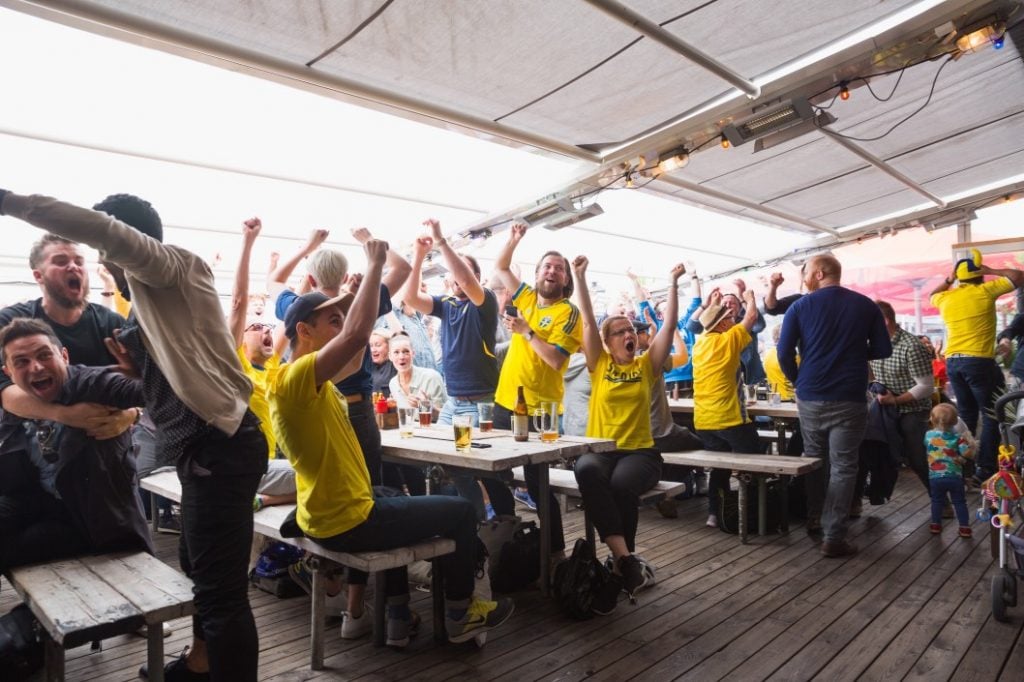
Top 20 Most Popular Male First Names in the Nordics
| Name | Meaning | Nordic People |
|---|---|---|
| Lars | Lars is a short form of the Latin Laurentius which means “crowned with laurel wreath” or “man from Laurentum”. | 160522 |
| Jan | Jan is a German short form of Johannes, which is of Hebrew origins and means “the lord has mercy”. | 149096 |
| Mikael | Mikael, or Michael, is a biblical Hebrew name that means “who is like God”. | 147037 |
| Thomas | Thomas comes from the Greek Θωμᾶς (or Thōmas) which stems from the Aramaic word for “twin”. | 143862 |
| Erik | Eric is a Nordic name that originates from the Old Norse Airikr which means “lone ruler” or “always powerful”. | 132328 |
| Anders | Anders is a Nordic name that stems from the Greek word Andro which means “human”, “man”, or “miracle” depending on the source. | 131683 |
| Per | Per, also Pehr and Pär, is the Nordic short form of the Latin/Greek Petrus, meaning “rock”. | 131392 |
| Peter | Peter is the English form of the Latin/Greek Petrus, meaning “rock”. | 119423 |
| Daniel | Daniel is a Hebrew name that means “God is my judge”. | 106155 |
| Christian | Christian, or Kristian, stems from the Latin Christianius that means “the Christian”. | 103884 |
| Martin | Martin stems from the Latin Martinus, which means “Martian”. | 99722 |
| Hans | Hans is a German short form of Johannes, which is a Hebrew name that means “the lord has mercy”. | 98816 |
| Johan | Johan is a short form of Johannes, a Hebrew name meaning “the lord has mercy”. There are three Swedish kings named Johan throughout history. | 98641 |
| Fredrik | Fredrik, or Frederik, is a name of German origins meaning “peaceful ruler”. There has been a total of eleven Scandinavian kings with this name, most of them Danish. | 95804 |
| Henrik | Henrik, or Henric, stems from the German Heinrich that means “ruler of the home”. | 94966 |
| Jonas | Jonas stems from the Greek/Latin Jonah that in turns comes from the biblical Hebrew name Yonah, which means “white dove”. | 93088 |
| Mattias | Mattias, or Mathias, is a Greek form of the Hebrew name Mattitjahu that means “god’s gift”. | 92645 |
| John | John, or Jon, is the English short form of the Greek Johannes, which stems from a Hebrew name meaning “the lord has mercy”. | 89881 |
| Andreas | Andreas is a Greek name that stems from the word Andro which means “human”, “man”, or “miracle” depending on the source. | 88276 |
| Karl | Karl or Carl (usually nicknamed “Kalle”) is a Nordic name originating from the Old Germanic Karlaz, which means “free man”. A total of ten Swedish kings, including the current Carl XVI Gustaf, has the name Karl. | 86069 |
The most popular first names in the Nordics as a whole are Maria, Anna, and Eva for females, and Lars, Jan, and Mikael for males. A curious observation is that Nordic people seem to have a stronger preference toward the top 3 names when it comes to female names, but when it comes to male names the top 10 is significantly more evenly distributed.
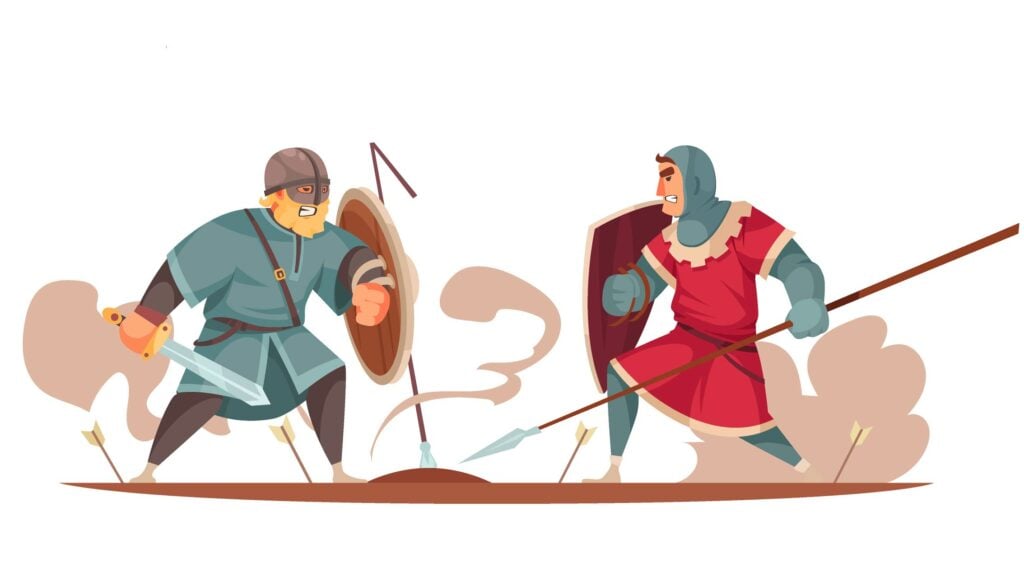
The Most Popular Norse (Viking) Names In the Nordics
Since my focus is also on specifically Norse or Viking names, I also sorted through all the names with Old Norse origin from the data I compiled, to see which of the old Viking names are still popular in today’s Nordic countries. Let’s take a look at the results!
Top 20 Most Popular Old Norse Female Names in the Nordics
| Name | Meaning | Nordic People |
|---|---|---|
| Inger | Inger is a Nordic name stemming from the Old Norse name Ingegerd, which means (“farmstead”, or “protected”). | 81075 |
| Ingrid | Ingrid is a Nordic name that comes from the Old Norse Ingifridh, which means “beautiful” or “beloved”. | 74292 |
| Astrid | Astrid is an Old Norse name that means “god and peace” or “beautiful”. In Old West Norse it was written as Ásfríðr, and in Old East Norse as Estrid. In Norway the name is sometimes written as Astri. | 40768 |
| Tove | Tove is a Scandinavian name that stems from the Old Norse Tófa, which is a short form of Þórfríðr. It means “beautiful thunder”. | 38031 |
| Frida | Frida is an Old Norse name that stems from the word fridh, which means “the loved one” or “the beautiful”. | 36620 |
| Liv | Liv, or Lif, is an Old Norse name that literally means “life”, but can sometimes be linked to the Old Norse word hlif which can mean “protection”. In Norse mythology Lif was the woman who survived Ragnarök. | 31639 |
| Signe | Signe is an Old Norse name stemming from Signý, which means “new victory”. The name was initially mainly popular in southern Sweden (Skåne), but has steadily gained popularity in the rest of Scandinavia during the last century. | 29160 |
| Åsa | Åsa, or Åse/Aase, is an Old Norse name that means “queen of goddesses”. | 28467 |
| Siv | Siv, or Siw, is and Old Norse name that originated in Norse mythology as the name of Thor’s wife (Sif). It means “bride” or “wife”. | 27907 |
| Gun | Gun, or Gunn, is an Old Norse name derived from gunnr, which means “battle”. In Norse mythology Gun was one of the valkyries who rode out on the battlefield to pick out the chosen warriors who were about to die. | 26955 |
| Hilde/Hilda | Hilde and Hilda are Old Norse names that stems from hild, which means “battle” or “war”. In Norse mythology Hild was one of Odin’s valkyries. | 25854 |
| Gudrun | Gudrun is the modern form of the Old Norse name Guðrún, which means “wisdom of the gods”. | 23992 |
| Gerd | Gerd is an Old Norse name that is derived from the word garðr, which means “protection” or “fence”. | 22556 |
| Bodil | Bodil (or Bothild, Botilda, Boel), is an Old Norse name comprised of the two words bot and hild, which together means “better battle”. | 21378 |
| Inga | Inga is an Old Norse name derived from the Norse goddess Ing, which is a different name for the goddess of fertility Freja/Frö/Frey, which in turn means “ruler”. It can also be a short form of any name that starts with Ing-, such as Ingegerd or Ingrid. | 20125 |
| Sigrid | Sigrid stems from the Old Norse name Sigfrid, which means “beauitful victory”. | 20071 |
| Freja | Freja, or Frej/Frey/Frö, is an Old Norse name and the name of the goddess of fertility. It means “ruler” or “wife”. | 19317 |
| Alva | Alva is an Old Norse name that is derived from Alv/Alf, which is a mythological creature in Old Norse folk tales and translates to “elf”. It can also be a short form of names beginning with Alv- or Alf-. | 17975 |
| Saga | Saga is an Old Norse name that means “she who sees” or “soothsayer”. | 16459 |
| Ragnhild | Ragnhild is an Old Norse name that is derived from two words that together means “battle of the gods” or “under the protection of the gods”. | 15576 |
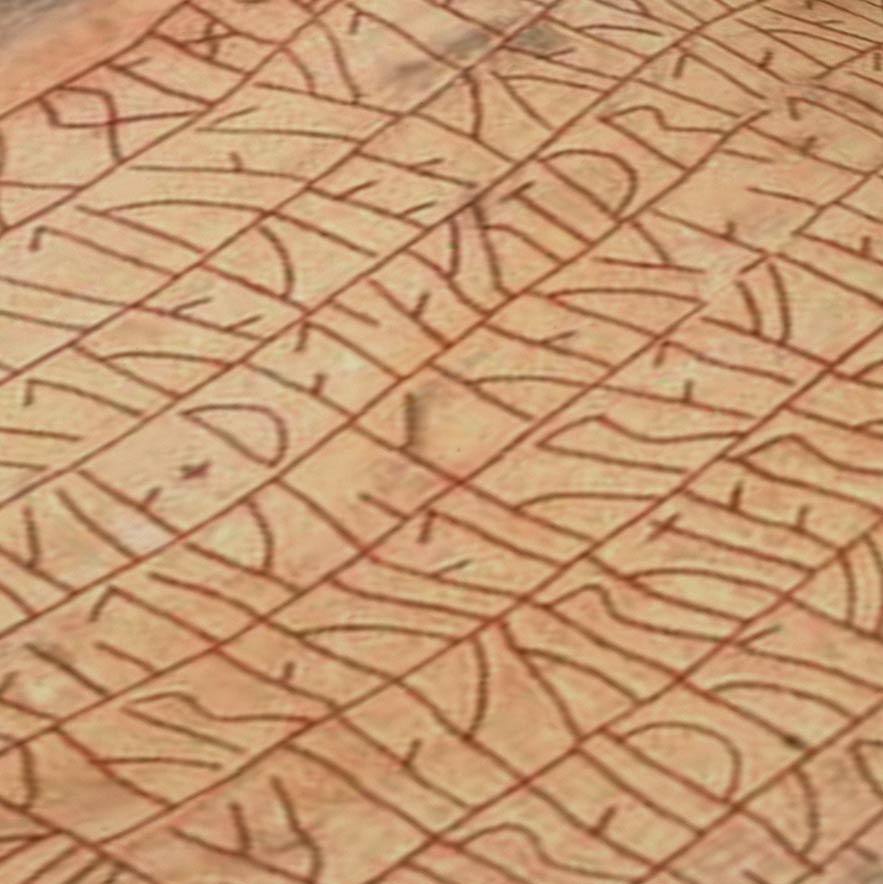
Top 20 Most Popular Old Norse Male Names in the Nordics
| Name | Meaning | Nordic People |
|---|---|---|
| Erik | Eric is a Nordic name that originates from the Old Norse Airikr which means “lone ruler” or “always powerful”. | 132328 |
| Karl | Karl or Carl (usually nicknamed “Kalle”) is a Nordic name originating from the Old Germanic Karlaz, which means “free man”. A total of ten Swedish kings, including the current Carl XVI Gustaf, has the name Karl. | 86069 |
| Bo | Bo is an Old Norse name that means “living”, “resident”, “farmer”, or “soldier”. | 84555 |
| Björn | Björn is an Old Norse name of Old Germanic origin, stemming from the word bernuz which means “bear”. | 79901 |
| Kjell | Kjell is a Nordic name that stems from Kættil or Kettil, which means “helmet”. | 73609 |
| Leif | Leif is a Nordic name that was originally a short form of names that contained leifr, which means “heir” | 61964 |
| Sven | Sven, or Svein, is an Old Norse name that means “young man”, or “youth”. | 60009 |
| Håkan | Håkan—or Håkon, Haakon, Hakun—is an Old Norse name that stems from two words that together mean “of noble lineage”. The current Norwegian crown prince is named Haakon. | 38696 |
| Ulf | Ulf is an Old Norse name that means “wolf”. It is a popular name for Swedish men aged 30-60, but not very popular for newborn babies in the Nordics in general. | 35524 |
| Olof | Olof, or Olav, is a Nordic name that means “forefather”. Olav is traditionally a name of kings in Norway, and has been worn by five Norwegian kings. | 31746 |
| Rune | Rune is an Old Norse name that stems from the word runa that means “secret wisdom” or simply “letter”. | 31518 |
| Knut | Knut is an Old Norse name that means “knot”, and specifically relates to bonds between people. It can also sometimes be loosely translated to “the bold one” from an Old Germanic perspective. | 27934 |
| Tor | Tor is an Old Norse name derived from the Norse god of thunder, and the name literally means “thunder”. It was not traditionally given to young boys on its own, but instead as part of a second name such as Torbjörn and Torleif. | 27881 |
| Rolf | Rolf is a short form of the Old Norse Rodhulf, which is derived from the two words hrodr and ulf and can be translated to “noble wolf”. | 23345 |
| Geir | Geir is an Old Norse name that stems from the old Germanic word gaizaz, which means “spear”. | 22004 |
| Tore | Tore, or Thore, is a short form of the Old Norse Thórir, that is thought to be a composition of the Norse thunder god Thor and the word verr, which together means “warrior of Thor”. | 21124 |
| Odd | Odd, or Oddur, is an Old Norse name that means “edge” or “pointy tip”. | 18913 |
| Gunnar | Gunnar is an Old Norse name derived from the words gunnr and haria, which gives the meaning “warrior of the army”, and specifically was thought of as a name for brave and bold fighters. | 17984 |
| Harald | Harald is and Old Norse name that derives from the Proto-Germanic Harja-waldaz which means “military-power” or “army-ruler“. | 17703 |
| Trond | Trond is and Old Norse name that stems from the word Þróndr, which means “to grow and thrive“. | 16968 |
Ingrid and Inger are the most popular Viking/Norse female names by a mile, followed by Astrid, Tove, and Frida. Furthermore, Erik is by far the most common Viking/Norse name for males, followed by Johan, John, Karl, Bo and Björn.
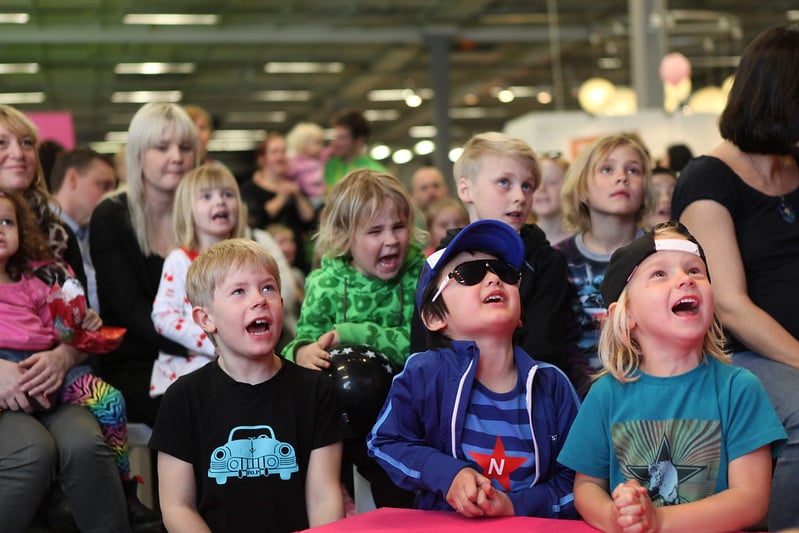
Our Picks: The Best Norse and Nordic Names
Now that we know the most commonly used names, the most popular baby names, and the old Norse names that are still commonly used today, we can start narrowing down the shortlists with our favorites of the bunch (or from outside the list of the most popular ones).
A name’s popularity isn’t a huge factor for everyone, but some like their baby’s name to be unique, while others prefer to follow current trends. For us, we preferred somewhere in the middle; not too odd and not too common (lagom, as it were!).
The criteria for our personal shortlists are pretty straightforward:
- The name has to sound good in both English and the Nordic languages (i.e. no Birger = Burger situations)
- The name has to have a meaning attached to it that feels relevant (i.e. no names with unknown meanings/origins)
- The name cannot be a fantasy-related/fictitious name (i.e. no Game of Thrones or Lord of the Ring names)
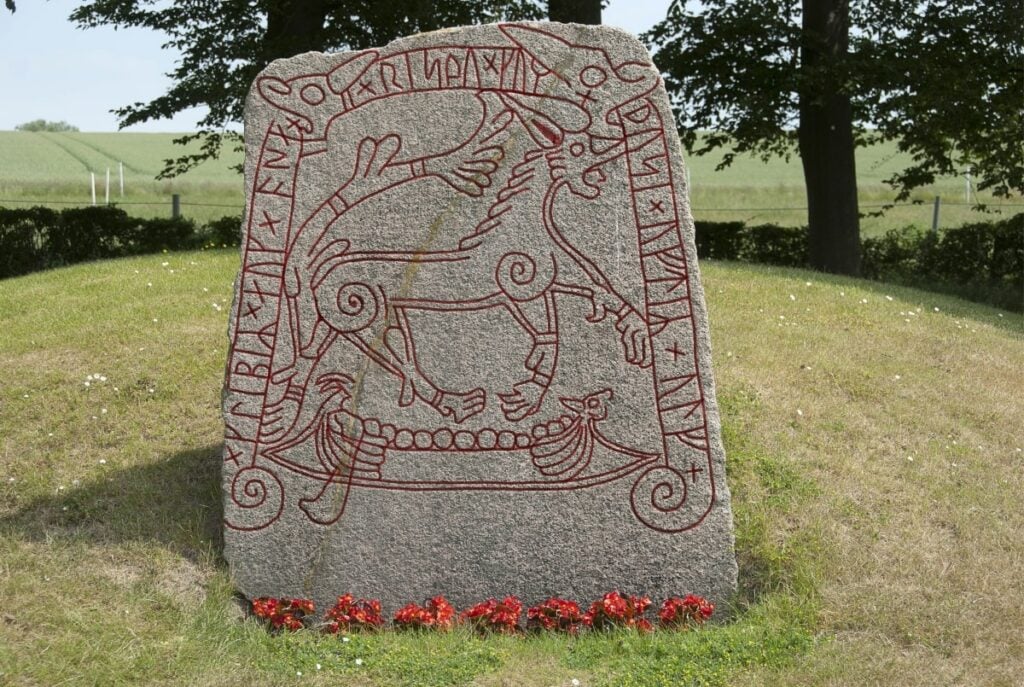
Our Favorite Viking/Old Norse Names For Girls
| Name | Meaning |
|---|---|
| Hilda | Hilde and Hilda are Old Norse names that stems from hild, which means “battle” or “war”. In Norse mythology Hild was one of Odin’s valkyries. |
| Ylva | Ylva is an Old Norse name that means “she-wolf”. It is derived from the male name Ulf/Ulv, which means “wolf”. |
| Saga | Saga is an Old Norse name that means “she who sees” or “soothsayer”. |
| Signe | Signe is an Old Norse name stemming from Signý, which means “new victory”. The name was initially mainly popular in southern Sweden (Skåne), but has steadily gained popularity in the rest of Scandinavia during the last century. |
| Edda | Edda is an Old Norse name that means “ancestor” or “old mother”. |
| Tove | Tove is a Scandinavian name that stems from the Old Norse Tófa, which is a short form of Þórfríðr. It means “beautiful thunder”. |
| Astrid | Astrid is an Old Norse name that means “god and peace” or “beautiful”. In Old West Norse it was written as Ásfríðr, and in Old East Norse as Estrid. In Norway the name is sometimes written as Astri. |
| Sigrid | Sigrid stems from the Old Norse name Sigfrid, which means “beauitful victory”. |
Our Favorite Viking/Old Norse Names For Boys
| Name | Meaning and origin |
|---|---|
| Ragnar | Ragnar is an Old Norse name that derives from the words regin and arr, and can be translated to “warrior of the gods” or “wise commander”. |
| Magne | Magne, or Magni, is an Old Norse name that means “the powerful”. In Norse mythology Magne was Thor’s strongest son, born by the goddess Járnsaxa. |
| Torbjörn | Torbjörn, or Thorbjörn/Thorbjørn, is an Old Norse name that is comprised of the names Tor and Björn, which gives the meaning “thunder bear” |
| Hjalmar | Hjalmar is an Old Norse name that means “helmed warrior”. |
| Isar | Isar is an Old Norse name that can be translated to “ice warrior” or “ice spear”. |
| Tore | Tore, or Thore, is a short form of the Old Norse Thórir, that is thought to be a composition of the Norse thunder god Thor and the word verr, which together means “warrior of Thor”. |
| Arvid | Arvid, or Arnvid/Arved, is an Old Norse name that originates from Arnviðr, which can be translated to “forest of eagles”. |
| Magnus | Magnus is a Norse name with Latin roots that means “mighty” or “great”. It has been found on runes from the 1100s but ultimately comes from Roman times where it was commonly attached to mighty rulers. |
| Joar | Joar is an Old Norse name that means “horse warrior”. |
Our Favorite Nordic/Scandinavian Names For Girls
| Name | Meaning and origin |
|---|---|
| Svea | Svea is a Swedish name that has been in use since the 17th century. It derives from Moder Svea (“Mother Sweden”), a symbol of Sweden. |
| Stine | Stine, or Stina, is a Nordic short form of Kristina, the female form of Kristian/Christian. It stems from the Latin Christianius that means “the Christian”. |
| Linnea | Linnea is a Swedish name that comes from the family name of Carl Linnaeus, “the father of modern taxonomy”, and ultimately a flower that was named after the famous botanist. |
| Malin | Malin is a short form of the biblical Hebrew name Magdalena (which means “woman from Magdala”). |
| Tove | Tove is a Scandinavian name that stems from the Old Norse Tófa, which is a short form of Þórfríðr. It means “beautiful thunder”. |
| Lovis | Lovis is a name of 19th century German origin, and means “heroine” or “famous fighter”. It is also the name of Ronja’s mother in Astrid Lindgren’s children’s book Ronja, the Robber’s Daughter. |
| Elin | Elin is a Swedish form of the Greek name Helena, which means “the enchanted” and is commonly associated with Helen of Troy (a.k.a. “the most beautiful woman in the world” in Ancient Greece). |
| Agnes | Agnes is a Swedish name in use since the 13th century, and of Greek origin. It means “pure” or “chaste”. |
Our Favorite Nordic/Scandinavian Names For Boys
| Name | Meaning and origin |
|---|---|
| Axel | Axel is a Nordic take on the Hebrew name Absalon, and can be translated to “father of peace”. |
| Mikko | Mikko is the Finnish form of Mikael, or Michael, which is a biblical Hebrew name that means “who is like God”. |
| Didrik | Didrik is the Nordic version of the Old German Theodarich, which means “ruler of the people”. |
| Ebbe | Ebbe is a Danish short form of the Old Norse Esbjörn or Asbjörn, which means “bear of the gods”. It can also be used as a short form for the German Eberhard, which means “hard boar” |
| Gisli | Gisli is an Icelandic name that means “arrow”. |
| Folke | Folke is a Nordic name that means “chief”. The House of Bjälbo (an Ostrogothian noble Swedish family that were kings of Sweden, Norway, and Denmark during medieval times) was known as Folkungar after their mythical forefather Folke Filbyter. |
| Algot | Algot is a Nordic name that can be translated to “the noble goth”. |
| Sivard | Sivard is a younger form of the Old Norse Sigvard, and means “guardian” or “watcher”. |
Summary:
So, now you know which Nordic and Norse names are most common in the whole Nordic region today, as well as what they mean and where they come from.
You’ve also gotten some good recommendations from my personal favourites, so hopefully you’re a bit closer to choosing a good Nordic or Norse name for your own child, pet, car, or whoever/whatever it is you’re naming. 😊
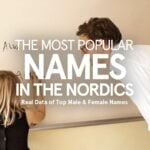 The Most Popular Names in the Nordics (Real Data)
The Most Popular Names in the Nordics (Real Data)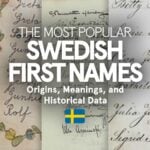 The Most Popular Swedish First Names 1920-2022 (+ Meanings)
The Most Popular Swedish First Names 1920-2022 (+ Meanings)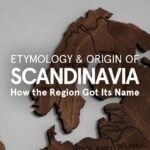 Why It Is Called Scandinavia (Origins & Meaning)
Why It Is Called Scandinavia (Origins & Meaning) Nordic and Scandinavian Languages Explained and Ranked
Nordic and Scandinavian Languages Explained and Ranked

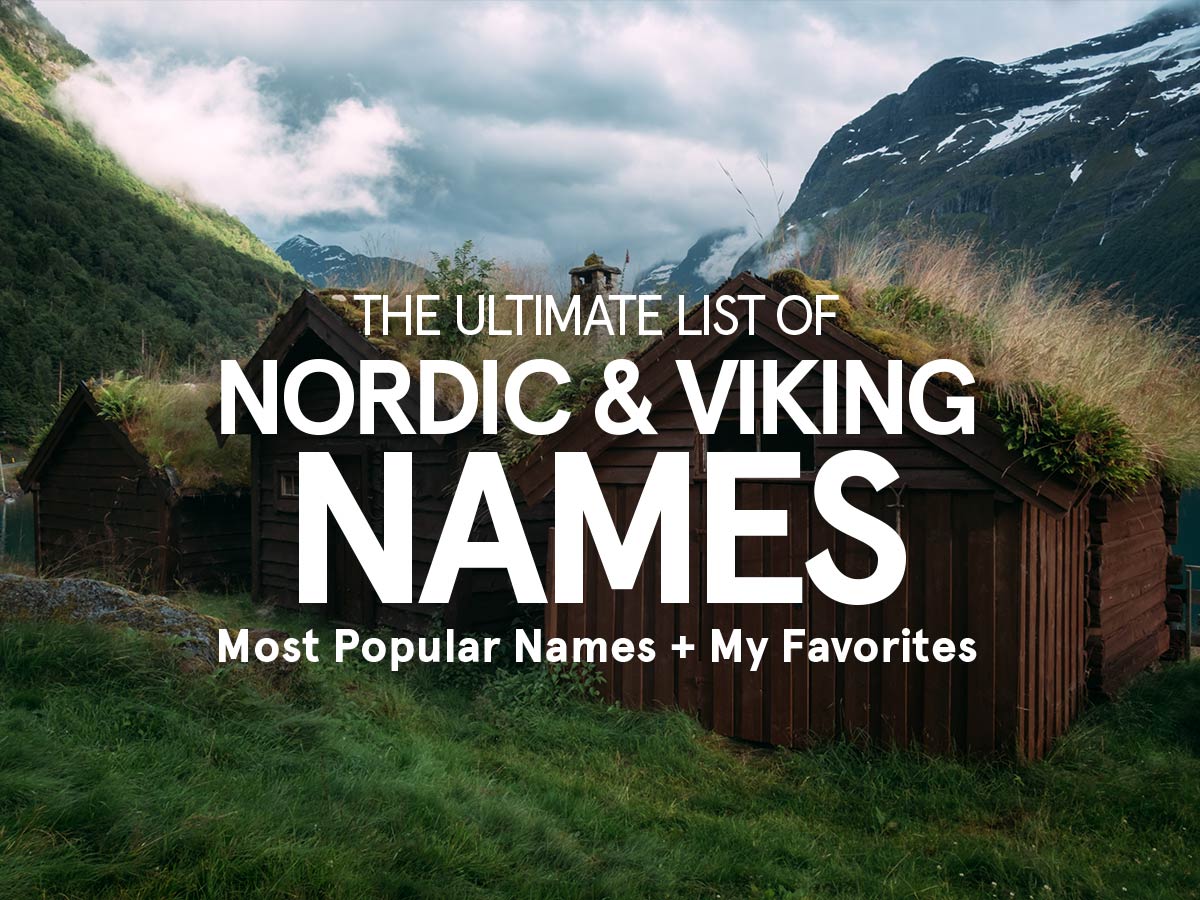
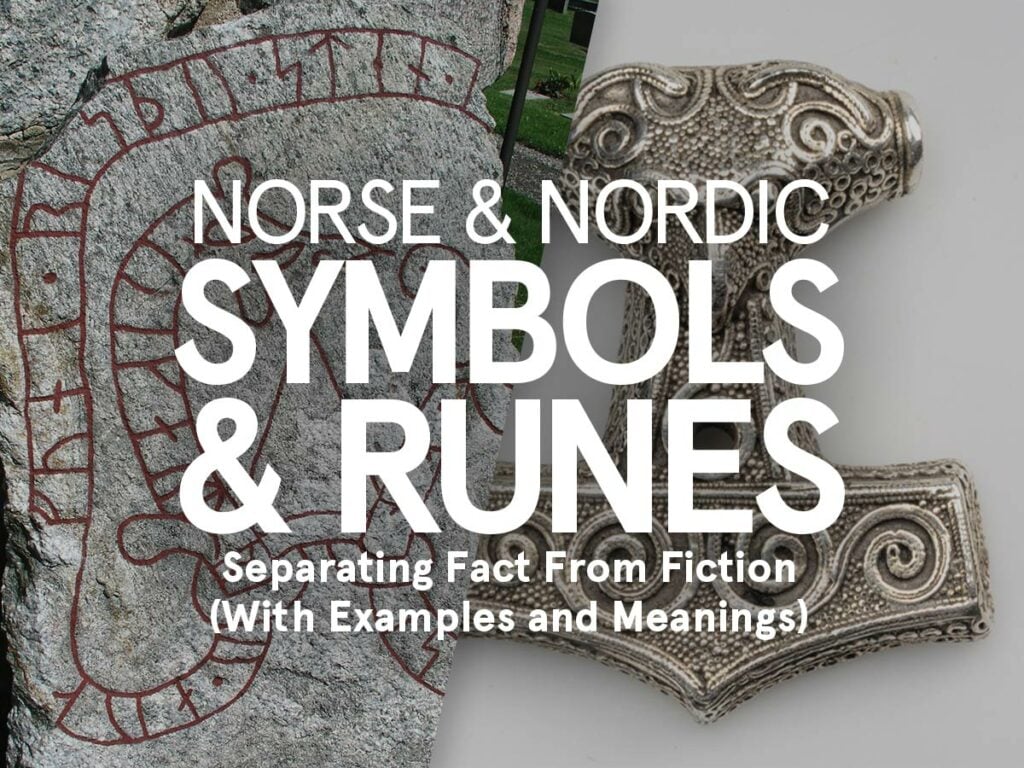
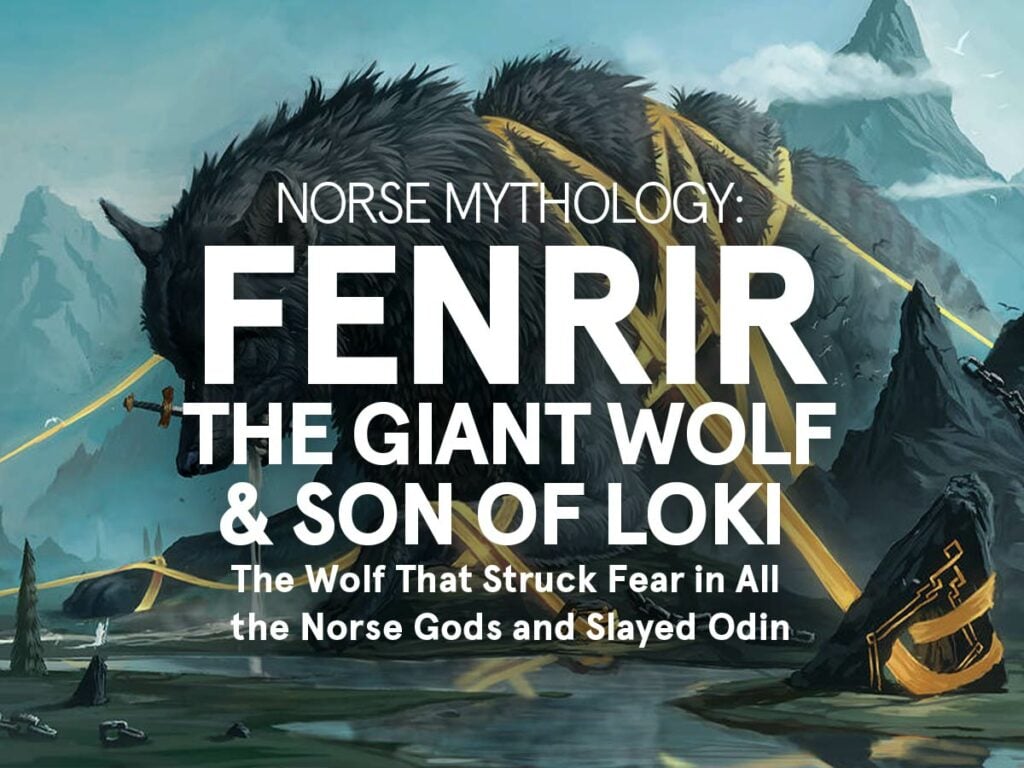
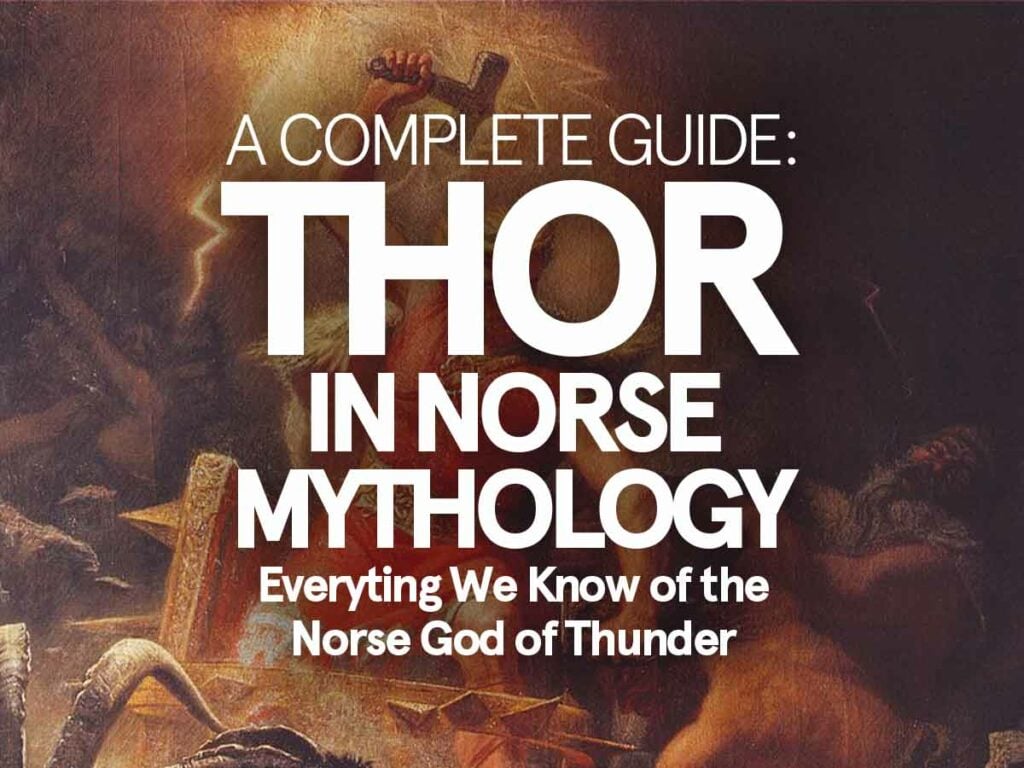
I have read through so many of your articles, and I am just amazed at the unbiased knowledge I’ve been able to indulge in. I am American born but I have been researching my heritage and know that my great grandfather was born in Sweden and my lines (in the rest of my family) are heavily Scandinavian too. I’m so excited to keep exploring your website. It’s amazing to connect with a culture that my family lost. Thank you.